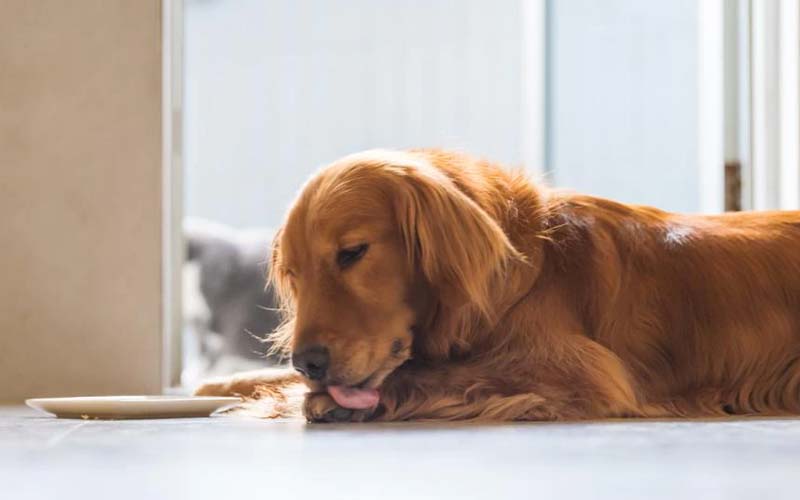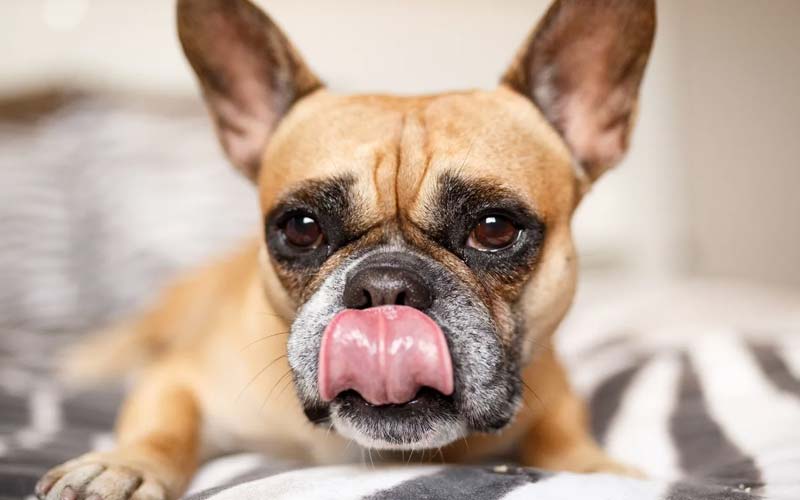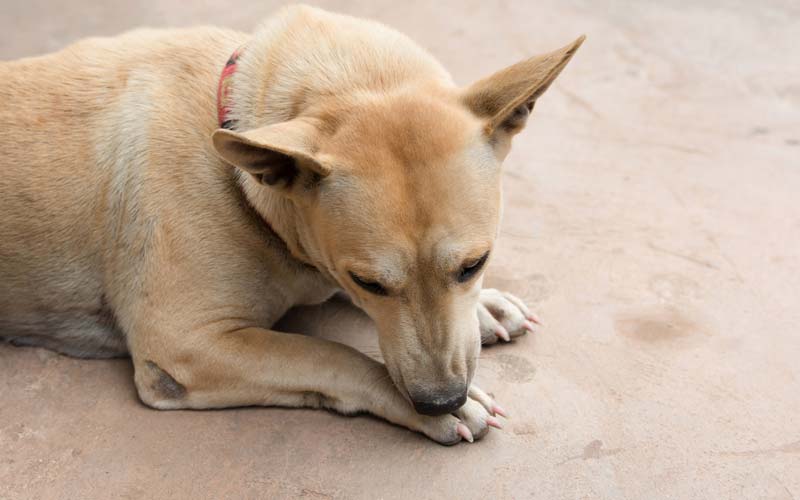If you’ve ever wondered why your furry friend has a tendency to lick everything in sight, you’re not alone. Dog licking is a widespread behavior that can range from the occasional, harmless lick to excessive and persistent licking that becomes a cause for concern. In this article, we delve into the reasons why dogs lick constantly, shedding light on both natural and potential underlying causes. We’ll also provide some practical tips to help manage this behavior and keep your canine companion comfortable and healthy.

1. Understanding the Natural Instincts
Licking is a natural behavior in dogs that serves several purposes. As puppies, they learn to lick as a means of communication and bonding with their mother and littermates. Additionally, dogs use licking as a way to explore and interact with their environment. It’s their way of gathering information about the world around them, much like how we use our sense of touch.
2. Common Reasons for Constant Lickin
While occasional licking is generally harmless, constant and excessive licking may indicate an underlying issue. Here are some common reasons why dogs engage in this behavior:
- Anxiety and Stress: Dogs may lick excessively when they feel anxious or stressed. It’s their way of self-soothing and coping with their emotions. If you notice your dog licking excessively in specific situations or during times of change, it’s essential to address the underlying anxiety.
- Allergies and Skin Irritations: Skin allergies, hot spots, or other irritations can cause dogs to lick incessantly as a response to the discomfort. Fleas, ticks, or certain foods can also trigger allergic reactions, leading to excessive licking and scratching.
- Boredom or Lack of Stimulation: Dogs are intelligent creatures that need mental and physical stimulation. If they’re not adequately engaged, they may resort to licking as a way to alleviate boredom. Providing appropriate toys, exercise, and attention can help combat this behavior.
- Medical Conditions: Certain medical conditions, such as gastrointestinal problems, hormonal imbalances, or neurological disorders, can manifest as excessive licking. If your dog’s licking is accompanied by other unusual symptoms, it’s crucial to consult your veterinarian for a thorough examination.

3. Managing Excessive Licking
Now that we’ve explored the potential reasons behind constant licking, let’s discuss some strategies to manage this behavior:
- Identify and Address Underlying Issues: If you suspect that your dog’s licking is due to anxiety, allergies, or a medical condition, consult with a veterinarian. They can help diagnose the root cause and recommend appropriate treatment options.
- Provide Mental and Physical Stimulation: Engage your dog in regular exercise and playtime to keep them mentally and physically active. Puzzle toys, interactive games, and training sessions can also help divert their attention from excessive licking.
- Maintain a Healthy Diet: Ensure that your dog is on a balanced and nutritious diet. Certain dietary deficiencies can contribute to skin problems, which in turn may trigger excessive licking. Consult with your veterinarian to determine the best dietary choices for your pet.
- Create a Calming Environment: Establish a calm and secure environment for your dog, especially if they are prone to anxiety or stress. Comforting routines, safe spaces, and the use of pheromone products can help promote relaxation and reduce excessive licking.

Conclusion
In conclusion, while dog licking is generally a natural behavior, excessive and constant licking may signal an underlying issue. By understanding the potential reasons behind this behavior and implementing appropriate management strategies, you can ensure the well-being and comfort of your beloved pet. Remember, if you’re concerned about your dog’s licking habits, it’s always best to consult with a veterinarian for professional guidance tailored to your dog’s specific needs.
With a little patience and attention, you can help your dog find healthier ways to express themselves and enjoy a happy, lick-free life!
Remember to always consult with your veterinarian for personalized advice regarding your dog’s licking habits.